Geopolitics
Due to the age of publications, certain works listed are no longer in print. Print-on-demand services are available for some titles upon request.
 The Boundaries of War
The Boundaries of War
Local and Global Perspectives in Military History
Edited by Lee L. Brice and Timothy M. Roberts
The expansion of trade and communication networks has been active since the fifteenth century and has had an undeniable impact on connecting military activity around the world. This fact is visible in the historical record, but has it in the last several decades transformed the historiography of military history? The Boundaries of War offers a discussion on whether the transnational turn in historical scholarship suggests that all warfare is derivative of larger global patterns, or if there are local, regional, or national ‘ways of war’ that differentiate conflict within that certain geographical space, which historians should acknowledge. The authors consider how much military historians should focus on local or idiosyncratic factors to explain their subject matter and whether they should consider global phenomena in their research.
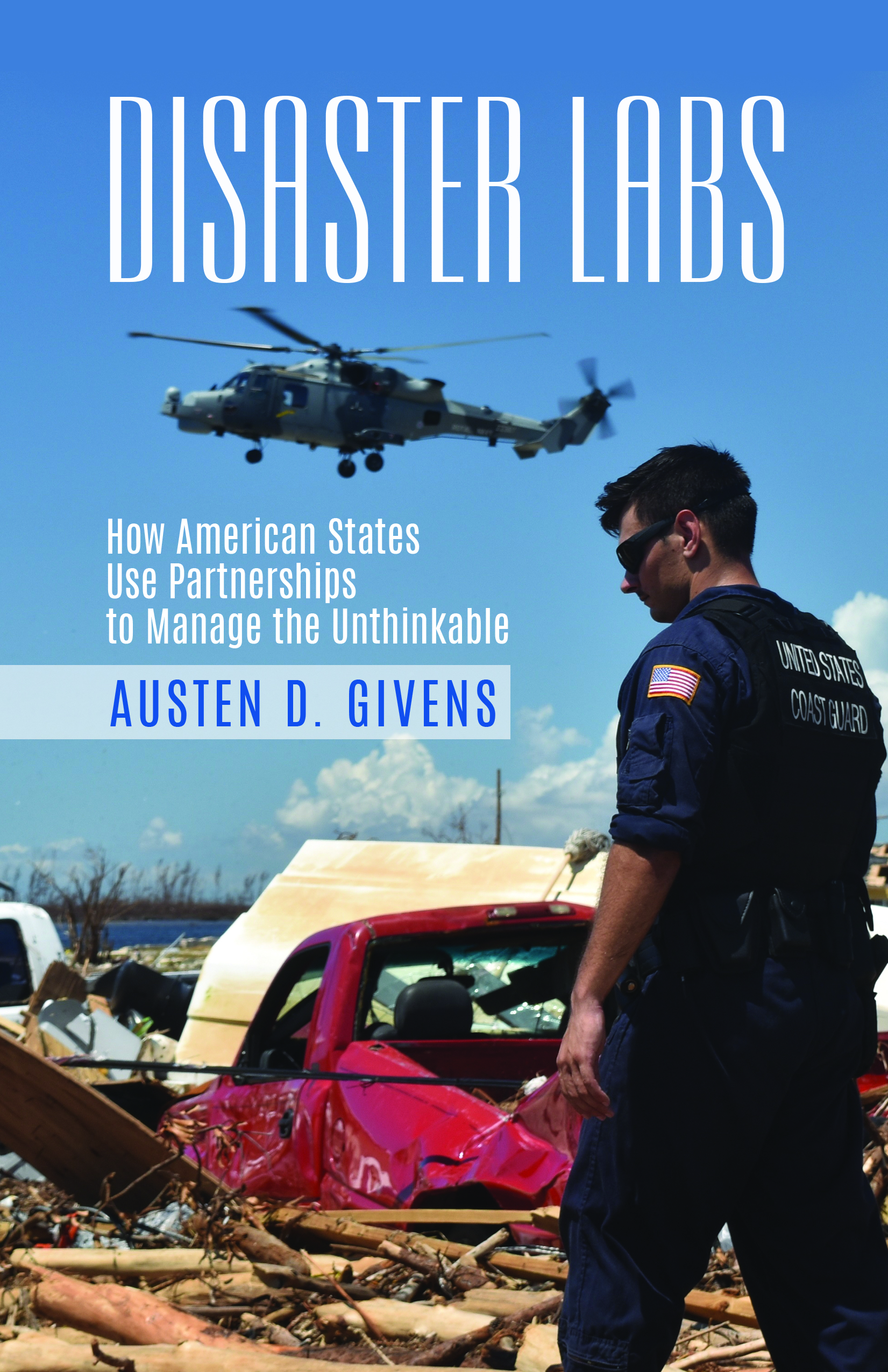 Disaster Labs
Disaster Labs
How American States Use Partnerships to Manage the Unthinkable
By Austen D. Givens
Disaster Labs explores how state governments partner with businesses and nonprofits to manage large-scale emergencies in California, Florida, New York, and Virginia. For these disaster-management collaborations to continue, state governments, businesses, and nonprofits must plan now for their future. These collaborations also need the freedom to shape their partnerships in each of their unique state environments. Each state has distinct attributes that make state-level partnerships attractive. These range from differing types of disasters, political environments, nonprofit sectors, and commercial entities. Without undue federal interference, these state-level, public-private partnerships work best to achieve results and provide relief to disaster-prone areas.
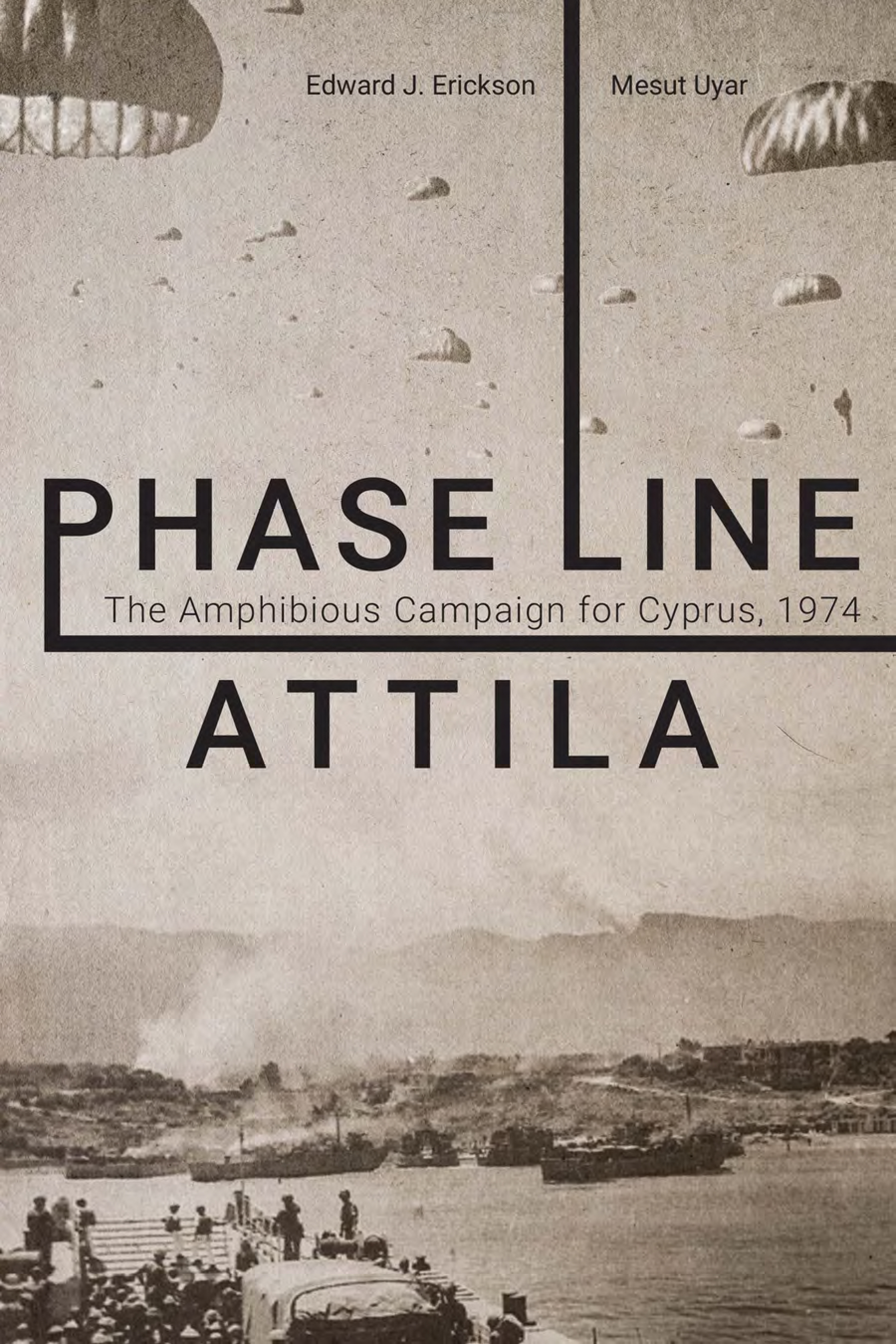 Phase Line Attila
Phase Line Attila
The Amphibious Campaign for Cyprus, 1974
By Edward J. Erickson and Mesut Uyar
Phase Line Attila describes the successful Turkish amphibious invasion of Cyprus, which culminated in the partitioning of the island of Cyprus into Turkish- and Greek-Cypriot zones. The invasion is an under-studied amphibious operation that occurred in the post–World War II era. The invasion was prompted by the increasing levels of violence between Turkish and Greek Cypriots, which led to the involvement of both Greece and Turkey in the island’s affairs. This book is a nuanced examination of the successful Turkish amphibious operation to carve out a Turkish-Cypriot zone in north Cyprus in Operation Yıldız Atma-4.
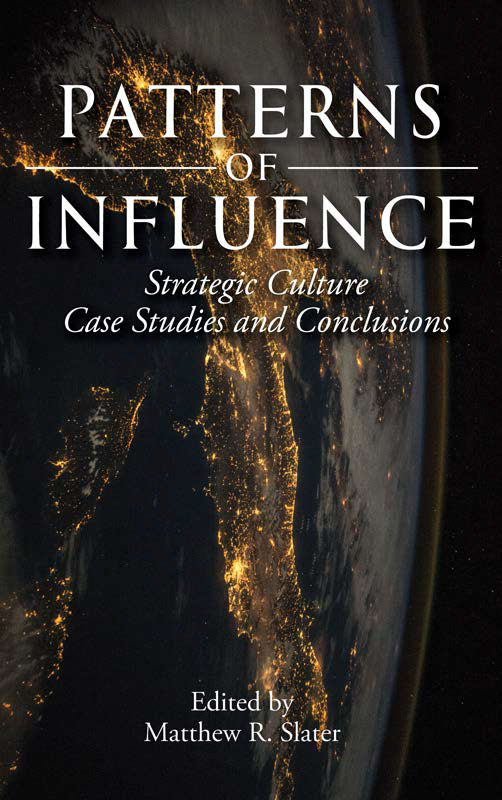 Patterns of Influence
Patterns of Influence
Strategic Culture Case Studies and Conclusions
Edited by Matthew R. Slater
Patterns of Influence is a timely book because of its applicability to the emerging strategic environment. The world is realigning into a multipolar power structure. Multipolar structures are typically complex, especially when considering the overlapping spheres of influence claimed by the competing powers in the international system. Patterns of Influence enables researchers to cope with the complexity of multipolar networks by promoting a strategic culture approach that provides a better understanding of internal state decision making. This book provides important commentary regarding the overall utility of strategic culture on states with limited federal governance, newer states that are still forming political processes and institutions, and smaller states that may become lost in the wake of regional powers. This study of strategic culture is written by scholars who are experienced working within the Department of Defense, including chapters on China, Afghanistan, Brazil, and Kosovo. Not only are the case studies geographically dispersed but also include large and small states, states with fragment- ed and cohesive political and social systems, as well as recently installed and more established governments. The eclectic group of case studies provide a broad basis to compare outcomes based on the strategic culture approach.
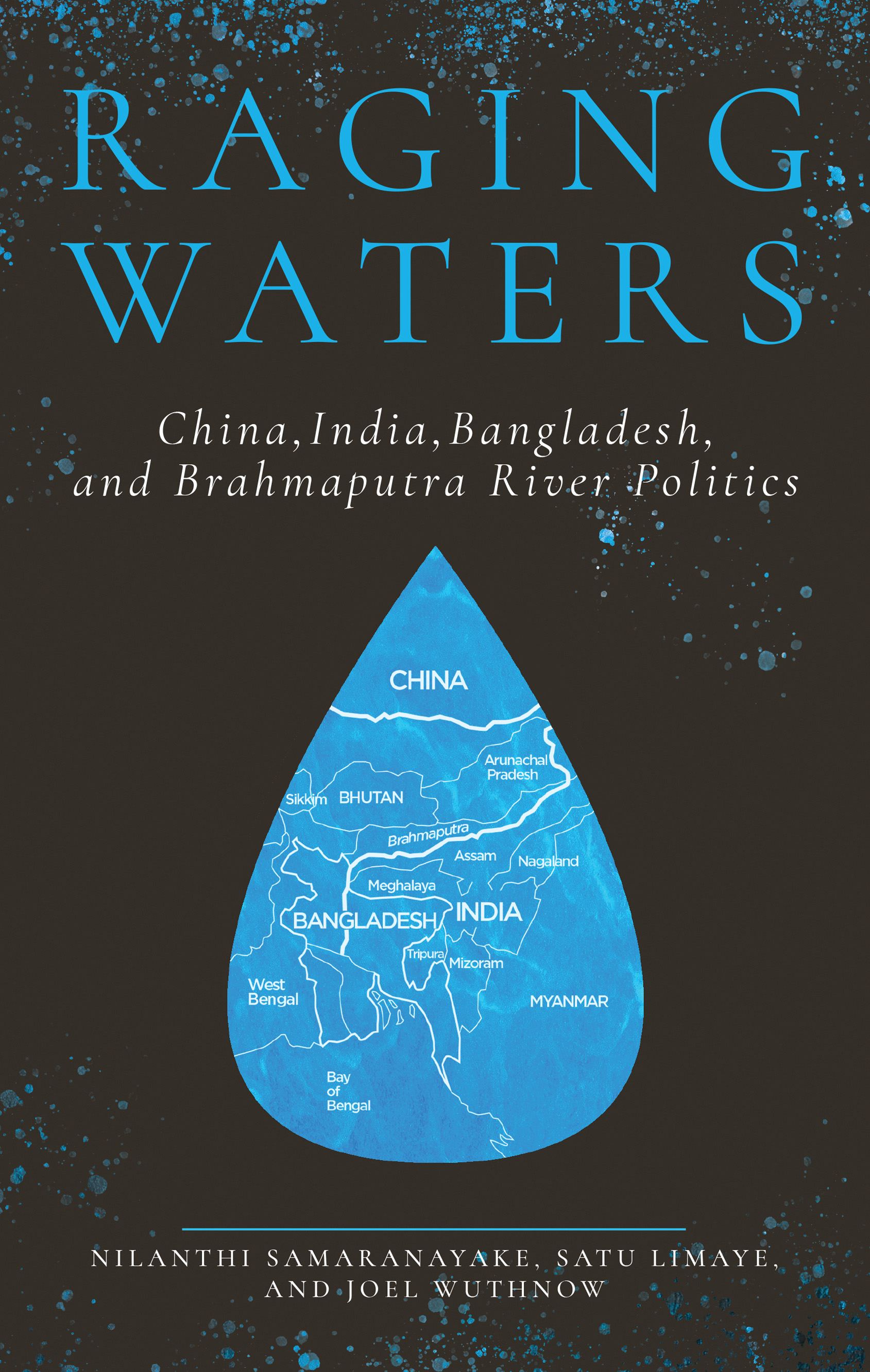 Raging Waters
Raging Waters
China, India, Bangladesh, and Brahmaputra River Politics
Nilanthi Samaranayake, Satu Limaye, and Joel Wuthnow
The Brahmaputra River originates in China and runs through India and Bangladesh. China and India have fought a war over contested territory through which the river flows, and Bangladesh faces human security pressures in this basin that will be magnified by upstream river practices. Controversial dam-building activities and water diversion plans could threaten regional stability; yet, no bilateral or multilateral water management accord exists in the Brahmaputra basin.
 Strategic Water
Strategic Water
Iraq and Security Planning in the Euphrates-Tigris Basin
By Frederick Lorenz and Edward J. Erickson
After the final phase of drawdown of U.S. troops in Iraq, it is important to do what we can to help maintain a level of stability and to look ahead to emerging security threats. Strategic Water: Iraq and Security Planning in the Euphrates-Tigris Basin by Frederick Lorenz and Edward J. Erickson makes an important contribution to this effort by taking a close look at a serious problem that is often neglected—the decline in freshwater availability and its impact on regional security.
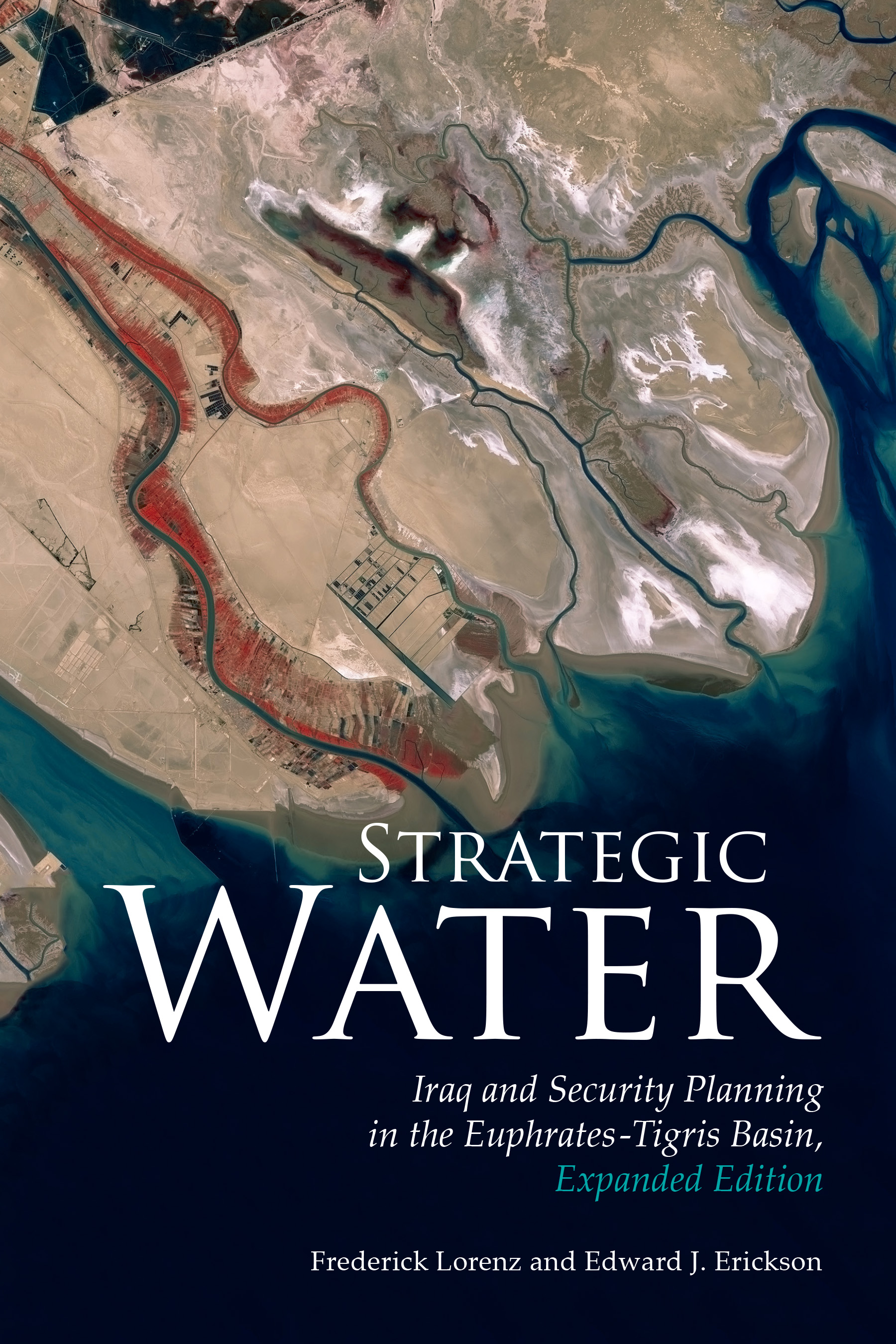 Strategic Water
Strategic Water
Iraq and Security Planning in the Euphrates-Tigris Basin, Expanded Edition
By Frederick Lorenz and Edward J. Erickson
The issue of freshwater scarcity has always been of vital concern to humans, and today it is increasingly characterized as a strategic factor in security planning. In the Euphrates-Tigris basin, water apportionment and management combined with climate change are increasingly emerging as threats to regional stability. The United States has a longterm strategic interest in the Euphrates-Tigris basin that, in turn, is directly linked to the national interests of the riparian states. The expanded second edition of Strategic Water: Iraq and Security Planning in the Euphrates-Tigris Basin updates analysis of the geopolitical situation and expands coverage of the aspirations of the basin countries. Finally, the book presents new conclusions and a proposed framework for action in the next 10 to 20 years.